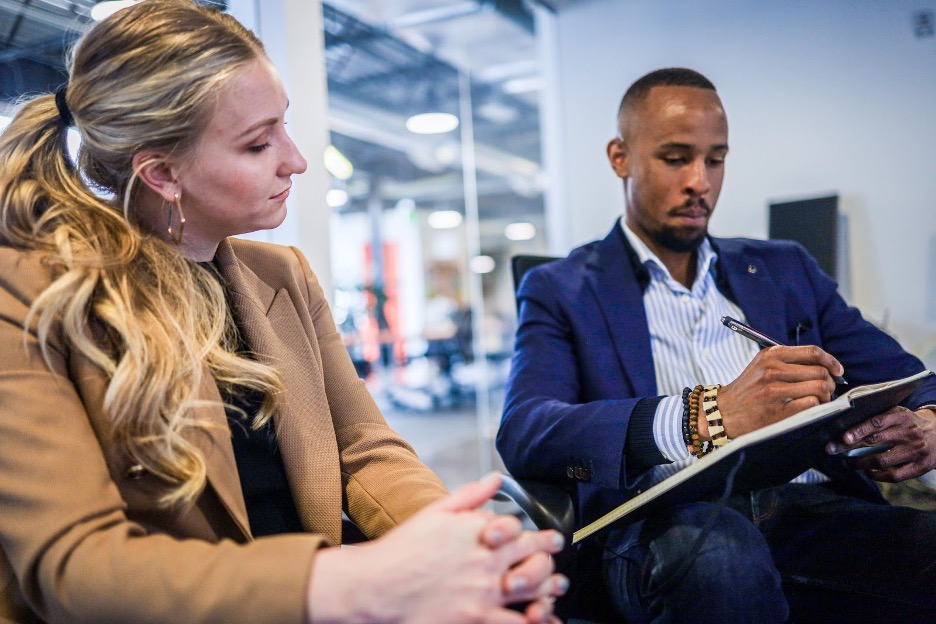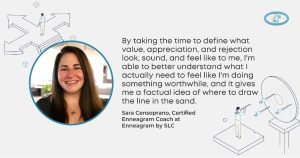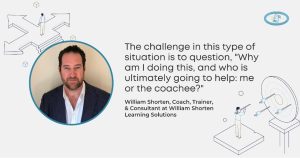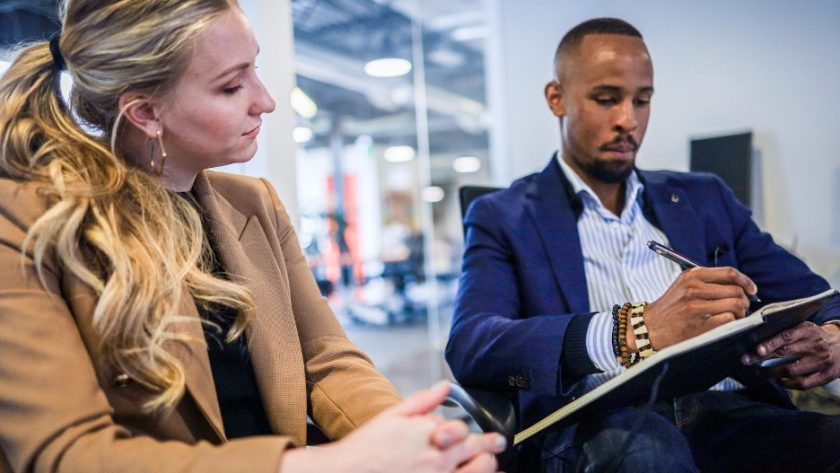
From setting boundaries to adapting the coaching style, here are eight answers to the question, “What is your biggest challenge as a Certified Professional Coach?”
- Establishing and Holding My Boundaries
- Standing Firm With My Value
- Remaining Neutral
- Refining a Consistent Marketing Message
- Coaching Using My Own Vulnerability
- Staying Committed but Also Flexible With a Niche
- Practicing What I Teach
- Adapting My Coaching to the Present Client
Establishing and Holding My Boundaries
The hardest part about being a certified Enneagram coach is holding my own boundaries while continuing to feel like I’m positively affecting and supporting my clients. As an Enneagram type 2, my self-worth is determined by how I can help and be of value to others, so continually saying “yes” is part of my DNA—I know my fellow people pleasers understand!—but knowing when to step back and say “no” is crucial.
By taking the time to define what value, appreciation, and rejection look, sound, and feel like to me, I’m able to better understand what I actually need to feel like I’m doing something worthwhile, and it gives me a factual idea of where to draw the line in the sand. Being able to establish that guideline allows me to face this challenge head-on and do my best work for my clients.
- Sara Censoprano, Certified Enneagram Coach, Enneagram by SLC

Standing Firm With My Value
When I started my coaching practice, I struggled to stand firmly at a competitive hourly rate. I felt unworthy because I was still earning my hours, honing my skills, and had not yet been officially certified through the International Coaching Federation. This worthiness made me a victim when a potential client complained that my fee was too high.
In order to win the sale, I hedged, giving her a cheaper rate. I immediately regretted the decision as the client repeatedly no-showed for our sessions and ignored my invoices. Because I accepted a lower standard of pay, she mirrored it by showing up with a lower standard of respect, which undercut my confidence and professionalism. I dreaded our sessions because the surrounding energy clashed with my values and the service I wanted to give my clients.
Don’t undervalue your services or clients will, too. You do have the power to fire a client!
- Andrea Dewitt, Author, Speaker, & Leadership Coach, Andrea DeWitt Advisors
Remaining Neutral
One of the biggest challenges I find as a coach is how to stay neutral and allow the coachee to come up with their own solution. My sense is that a lot of coaches start practicing because they want to help others; however, sometimes this gets blurred with offering solutions. The challenge in this type of situation is to question, “Why am I doing this, and who is ultimately going to help: me or the coachee?”

- William Shorten, Coach, Trainer, & Consultant, William Shorten Learning Solutions
Refining a Consistent Marketing Message
As a certified coach, I know I have the tools and skill set to coach people on any topic. However, for marketing, coaches usually have to refine their messaging to specific topics, niches, and content pillars. At first, it felt like I was limiting myself (and my potential clients!) by only focusing on a few things.
Getting comfortable repeating messaging and finding different ways of telling the same or similar stories is definitely a major challenge, but it gets easier over time! It took me a year of coaching full-time to narrow this down by drawing out themes that arose from my clients.
- Emily Pasnak-Lapchick, Founder, Coach, & Social Impact Consultant, Chrysalis Exchange
Coaching Using My Own Vulnerability
When I started coaching clients, I felt like I was a fraud, which is ironic because I am an Imposter Syndrome Coach! I thought I had to have all the answers to be helpful to my clients. If I didn’t have all the tools to make their imposter syndrome vanish, they would view me as a bad coach.
To help address this feeling, I changed my tagline to, “The Imposter Syndrome Coach Who Has Imposter Syndrome,” which has not only made me feel more authentic with myself but allows my clients to know that while I am a coach, I still struggle from time to time! Since making this change, my clients have expressed more of their own vulnerability, which has led to some incredible coaching sessions!
- Cym Rogers, Imposter Syndrome Coach & Channel Activation Manager, Alli Rizacos
Staying Committed but Also Flexible With a Niche
When you train as a professional coach, it’s essential to choose and stay committed to a specialty area/niche so you can develop your skills and attract the right clients. But you also want to remain flexible and open to distinct possibilities as you refine your skills. It’s a challenge worth embracing when you can balance the duality of staying grounded and resilient while also being open and adaptable along your professional coaching niche journey.
- Jenny Wiley, Director of Programming & Community Growth, Active Choices, Inc.
Practicing What I Teach
The greatest challenge I face as a Certified Professional Coach is actually doing the work that I teach others to do. I can be my own biggest bully, a trait I had practiced for so long that it gets easy to slip back into it.
While as a Certified Coach, I know what I need to do when dealing with heavy emotions and transitions, actually doing it is my most strenuous work. Slowing down and giving myself and my emotions the time and space that they need without judgment is something that I have to remind myself to do every single day.
- Lesley Bradshaw, Certified Life Coach, Lesley Bradshaw
Adapting My Coaching to the Present Client
When you leave coaching school, you’re given the impression that, as a coach, you need to come up with packages or systems that will address the client’s needs. What you’ve discovered is that the client doesn’t easily fit into the box you’ve created. They have their own agenda and sometimes that agenda is difficult to find out and to adapt to. That’s the challenge and also the fun part about being a coach.




